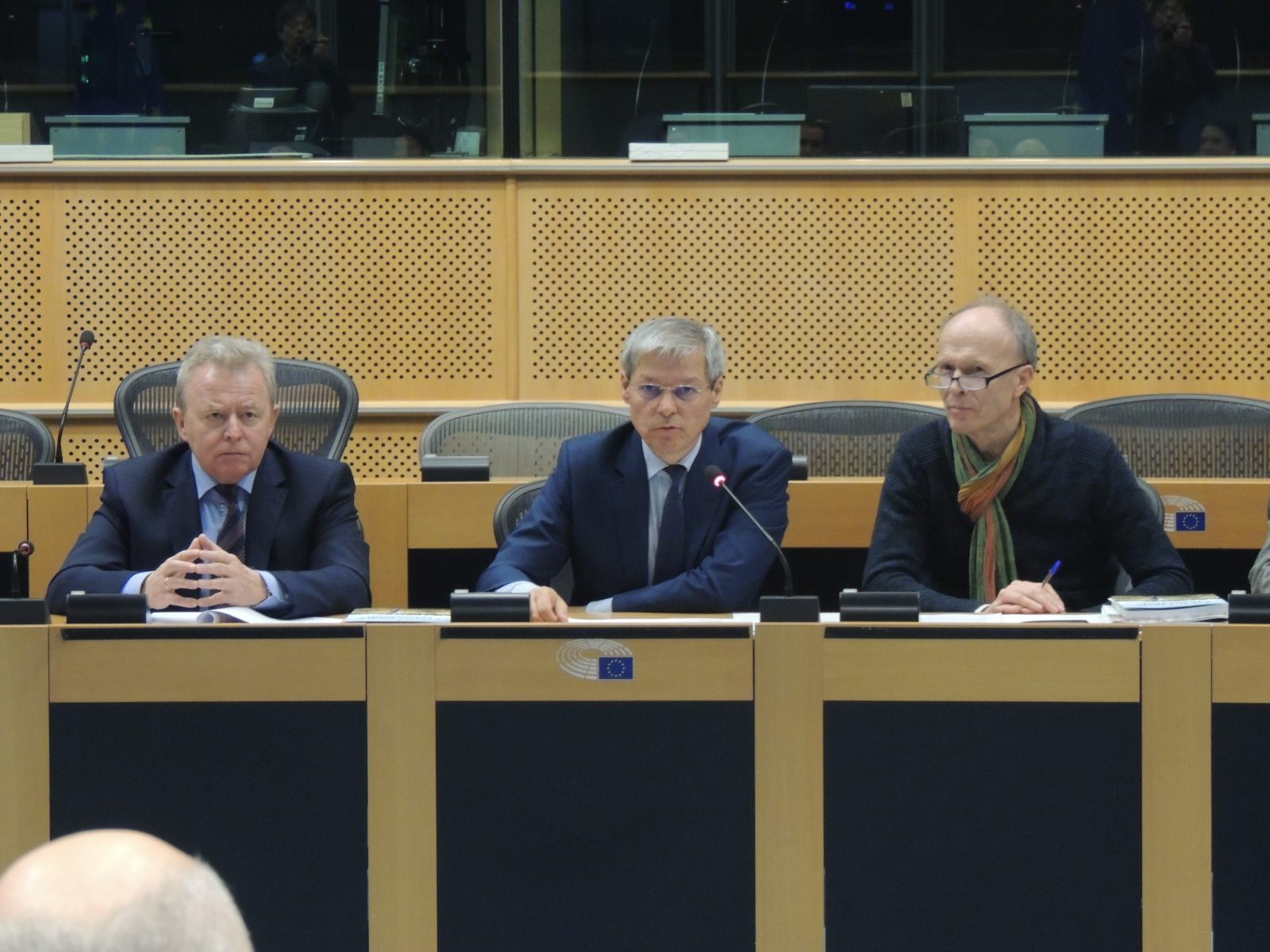
With the ongoing work on the CAP reform, Europe will have to respond to a wide range of new challenges, reflecting the ambitions of the EU Green Deal and Farm to Fork strategy. Rural regions of Europe, including those of the neighbor states, will play a key role in this process. To this end, an event was held on 22nd January which took a rural perspective on what’s needed in the months and years ahead.
With the ongoing work on the CAP reform, Europe will have to respond to a wide range of new challenges, reflecting the ambitions of the EU Green Deal and Farm to Fork strategy. Responding to these challenges in a sustainable and inclusive way will depend on close cooperation between political decision-makers and the wider civil society and on how complementary or contrary the relations are between European and national approaches.
Rural movements and organisations have gathered ideas and suggestions for the future of rural policies which could feed into the reform process. They have published various manifests and declarations in past years and months. During the recent plenary session of the Parliament in Strasbourg last Thursday, a new Intergroup on Rural Development of the EP has been established and will become a forum for further reflections.
Upon the initiative of former Commissioner Ciolos and ARC’s President Hannes Lorenzen, an event was held Wednesday (22nd January) in the European Parliament called Rural Europe: which way to go?
Speakers from the institutions were:
- Dacian Cioloș, President of Renew Europe
- Janusz Wojciechowski, European Commissioner for Agriculture
- Norbert Lins, President of the Agricultural Committee of the European Parliament
- Martin Häusling, Coordinator on Agriculture and rural policies of the Green/EFA group
- Boban Ilic, North Macedonia, General Secretary of the Standing Working Group of West Balkan Ministries for Agriculture and Rural Development (SWG)
- Eric Andrieu (S&D) and Franc Bogovic (PPE), Co-Presidents of the Intergroup for Rural Development RUMRA & Smart Villages
Speakers from civil society groups were
- Goran Soster, European Rural Parliament, and Prepare
- Marion Eckardt Sweden ELARD
- Vanessa Halhead Scotland ERCA
- Andrzej Halaciewicz Polish Rural Forum
- Harriet Bradley, Birdlife Europe

Marion Eckart from ELARD (L) and Paul Soto of ENRD (R). Photo Oliver Emmes of Forum Synergies
Dacian Ciolos moderated the first part and Hannes Lorenzen the second part of the evening. Hannes Lorenzen presented the book “Rural Europe on the Move – a travel guide to transitions”, published by Forum Synergies, a European Network on local rural development projects and initiatives. The book guides the reader through a dynamic and rapidly changing rural Europe and calls young people to take the lead in making rural communities, environments and economies resilient.
For the dialogue between institutions and civil society he also offered The “Best Of” – visions and policy proposals for the future of Rural Europe – Key messages drawn from publications of European civil society organisations.
Dacian Ciolos concluded the evening with the words: “This is the beginning of a process which will allow us to move out of the box, reflecting and discussing beyond the usual limits of existing policies and budgets and to reveal the importance of rural areas and their role to respond to the many challenges Europe as a whole faces today.
The “Best Of” – visions and policy proposals for the future of Rural Europe
Key messages drawn from publications of European civil society organisations. These key messages are drawn from proposals of the European Rural Parliament; RED, ELARD, PREPARE, ARC2020, Forum Synergies and have been prepared by Hannes Lorenzen, January 2020
Introduction – The need to change the narrative.
• Rural communities should be seen as drivers in the transition to greener and more caring societies in Europe. The rural regions of Europe have the potential to produce solutions to the key challenges of the coming decade. They are important actors substantially contributing to achieving the SDGs and the European Green Deal, responding to climate change, biodiversity loss, economic downturn and can offer new balanced solutions for rural and urban areas alike.
• This potential is not sufficiently recognised and mobilised by national and European policies. Investments and programs are focussed on metropolitan areas and the major centres of population. Current policies favour centralisation and fail to provide equal access to essential services – from health and education to broadband – or quality jobs for all rural citizens. In many rural areas, villages and small towns, this creates a feeling of disconnection. The subsequent frustration can drive rural communities away from common European ideas and values and weaken European cohesion and solidarity.
• The challenge for European policies is to take decisive action now to better address rural potential, to strengthen cohesion and cooperation between rural and urban areas, to build trust and stronger alliances between all rural stakeholders, and to overcome silo-thinking in national and European governmental structures.
A vision for rural development in the coming decade
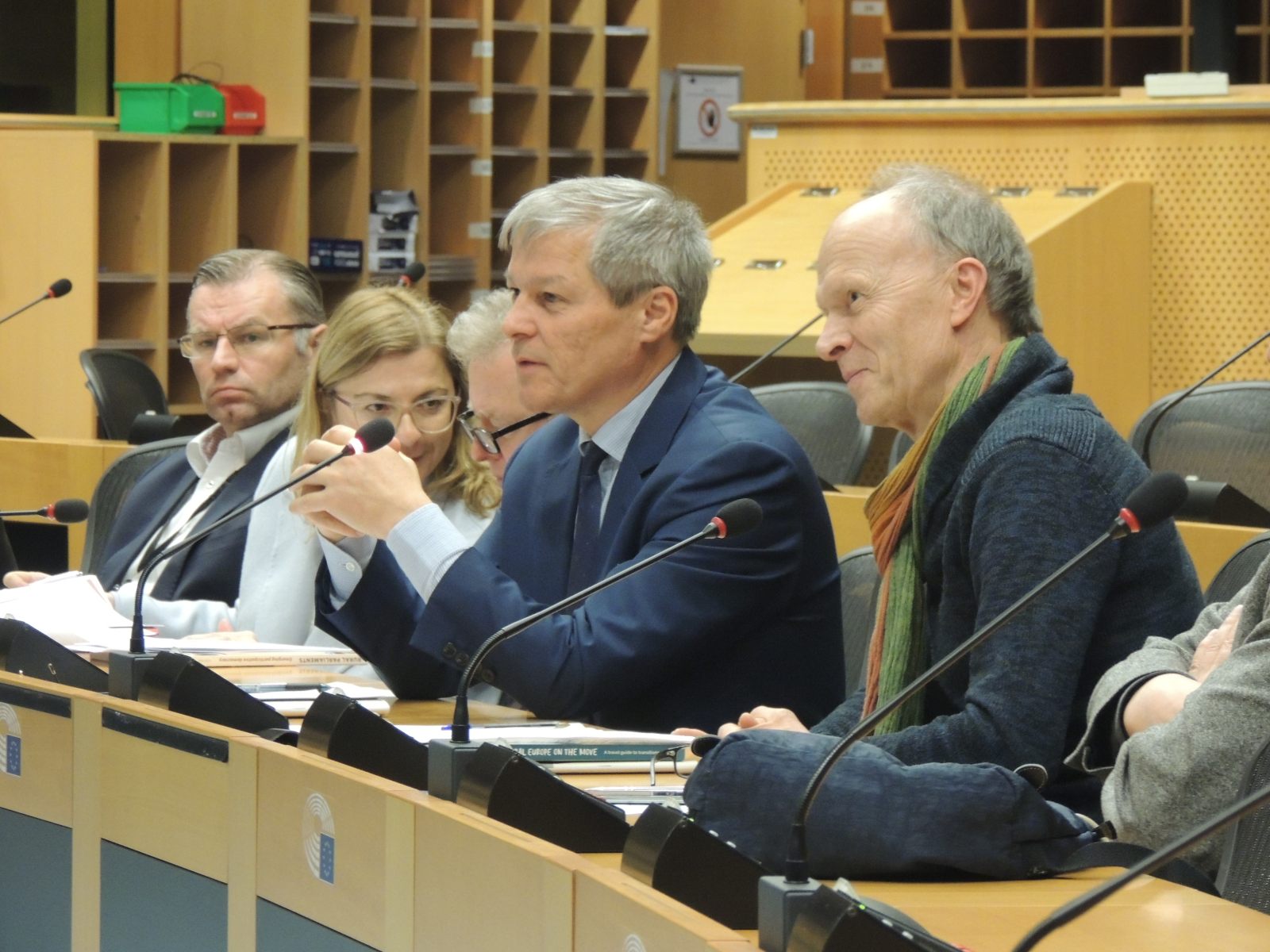
• Europe urgently needs a “long term vision for rural Europe”. That vision must be developed now in order to influence the next programming period and be based on the wide participation of rural stakeholders.
• The vision must lead to action. It should be translated into a concrete policy framework or “rural agenda” which should be resourced and developed through the same kind of institutional thematic working groups that exist for the urban agenda (for example, on the topics raised by the European Rural Parliament, RED, ELARD and other stakeholders, such as rural services, mobility, energy, youth, entrepreneurship, training etc)
• Following the Cork II Declaration, a rural agenda should propose a set of integrated policies which enable and empower rural communities to turn challenges into advantages such as decarbonisation, climate measures, digitalisation, generational change, integration of new entrants, social innovations, etc). The rural agenda should be built upon the success stories of the LEADER and CLLD approach of past decades.
• As a first step there needs to be a mandatory mechanism for impact assessment and coordination of all EU policies which impact rural areas (“rural proofing”). Policy goals need to be translated into adapted operational principles, incentives, procedures, criteria and governance systems which guide both Member States and the Commission in the joint management of the future CAP Strategic Plans and Cohesion Policy in rural areas.
Turning the vision into action through the CAP Strategic Plans and Cohesion Policy
• CAP Strategic Plans of Member States should take into account the Common Provisions Regulation so as to include all other ESIF funds. The Commission should develop serious EU wide provisions and mechanisms for ensuring coordination and synergies between all the funds with regard to rural development and rural-urban cooperation.
• Rural development funds should remain at least at the current level and should focus on much more integrated measures. Otherwise EU and national investments within strategic plans would risk becoming even more dispersed and less effective in the future.
• Existing funding streams for rural development should be brought together into coherent, integrated policy packages by earmarking and ringfencing the following areas: Pillar 2 of the CAP; Specific Objective 8 of the CAP for “vibrant rural areas”; funding for rural areas in the ERDF and ESF, funding for CLLD in the CAP Strategic Plans and all other funds, additional and complementary support for community led innovation such as that envisaged by Smart Villages.
• Of all EU Funds, Pillar 2 of the CAP is closer and has the longest track record of supporting the smaller, diverse projects that characterize much of rural development. This potential should be enhanced by explicitly recognizing and strengthening the role of Pilar 2 of the CAP for providing strategic coordination and smaller scale “seed” funding which attracts further investment from other funds.
• In this context, it is important to enhance the strategic role of CLLD in promoting inclusive structural changes, building community capacity and stimulating innovationas key drivers of a socially and environmentally sustainable transition in rural areas. In the new programming period, LAGs should not simply be seen as decentralized offices for distributing small grants.
• With regard to reducing bureaucratic burden, the European Commission and Member States should encourage the use of one lead fund and harmonised one stop shop solutions to improve multi-funded CLLD projects in both rural and urban areas (harmonised selection criteria and calls, simplified cost options, block exemptions from State Aid Rules, simplified application processes and eligibility conditions for small and civil society projects, and co-funding options for smaller projects by foundations and other agencies).
• There should be support for the transformation of AKIS (Agricultural and Knowledge Innovation Systems) into broader ARKIS (Agricultural and RURAL Knowledge and Information Systems) supported by rural community innovation brokers on a par with the innovation brokers for the food and agricultural sector and aligned with Horizon and other EU research and cooperation programmes.
• In this context, future cooperation measures should be flexible and open to all rural stakeholders and not conditional on the participation of one category. Current and future rural networks should play a central role in promoting integrated policy development for rural areas by all EU funds and have sufficient resources to provide hands-on support in key areas such as CLLD in rural, urban and coastal areas, other forms of cooperation, and the newer more challenging initiatives such as eco-schemes.


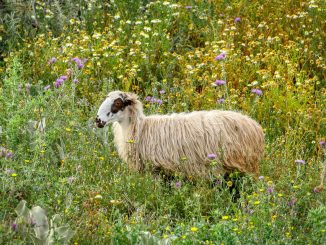
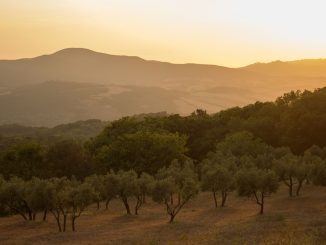
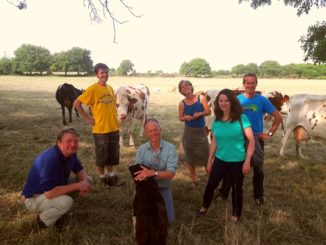
1 Trackback / Pingback
Comments are closed.